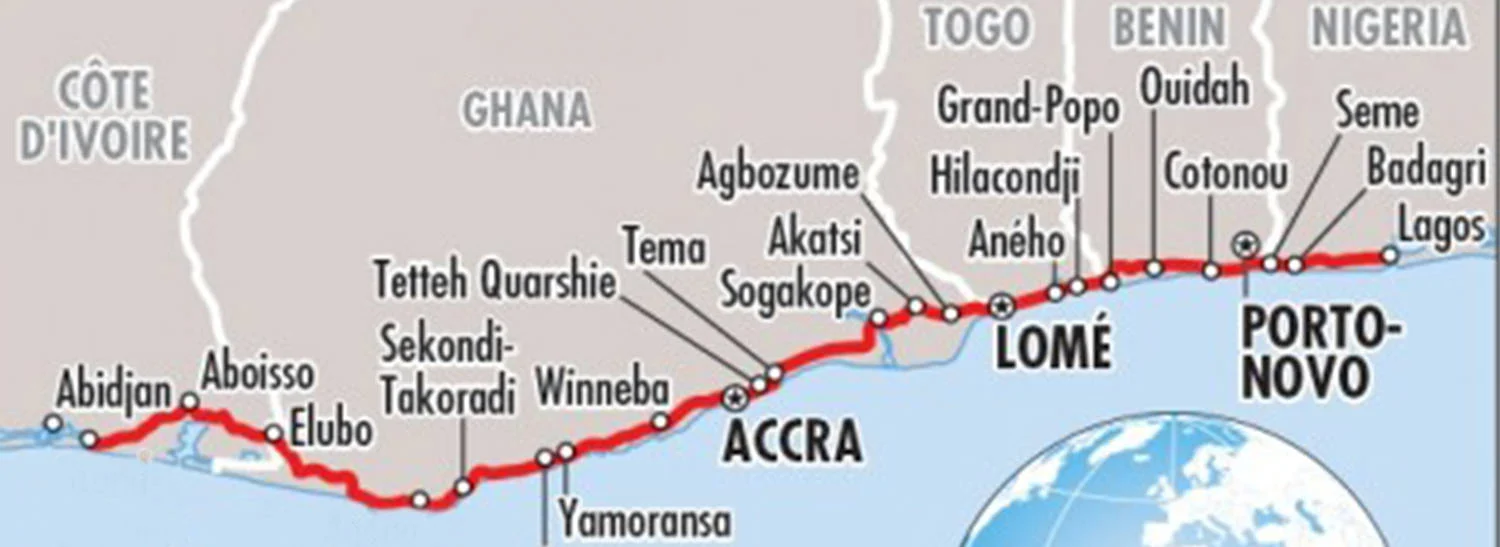On a hot afternoon in Lagos, a truck driver loads his goods: cocoa beans from Ghana, tomatoes from northern Nigeria, and fabrics from Togo. His job is simple: move goods across West Africa. But the journey is anything but simple.
Every border crossing means hours of waiting. Checkpoints demand small “fees” that eat into his profits. Potholes damage his truck, and what should take days often stretches into weeks. By the time the driver reaches Abidjan, some of his tomatoes are spoilt, and the cost of moving them has doubled.
This is the everyday struggle of West African trade. And it is exactly why the Lagos–Abidjan Highway is so important.
 Image by AFDB
Image by AFDB
A Highway with a Mission
The project is not just a road. It is a 1,000 km corridor linking five countries—Nigeria, Benin, Togo, Ghana, and Côte d’Ivoire, home to over 40 million people. It will connect busy ports and booming cities like Lagos, Accra, and Abidjan, making movement smoother than ever before.
But the true story is what this road could unlock: faster trade, cheaper transport, and a stronger Africa under the AfCFTA.
From Road to Market
Imagine the driver again, this time driving on the new Lagos–Abidjan Highway.
- Smooth tarmac means his truck moves faster, saving fuel.
- Border posts are streamlined, so instead of waiting 10 hours, he’s cleared in 30 minutes.
- Goods reach markets fresh, affordable, and on time.
Suddenly, a farmer in Ghana can sell yams in Nigeria within days. A fashion designer in Lagos can supply boutiques in Abidjan. Students can travel across borders for education without endless delays.
The road becomes more than concrete; it becomes a lifeline for trade and opportunity.
How This Highway Supports AfCFTA in Practice
AfCFTA’s aim is to create a single continental market for goods and services, reduce tariffs (for intra-African trade), streamline customs, allow free movement of goods, etc. The Lagos-Abidjan Highway helps enable many of its operational levers. Here’s how:
| AfCFTA Goal / Barrier | How the Highway Helps | What Needs to Happen (to maximize gain) |
|---|---|---|
| Reduced Transport Time & Costs | Improved, high-capacity road corridor reduces delays, fewer bad road stretches; more direct path between major ports/cities. This lowers cost of freight and reduces spoilage, especially for perishable goods. | Harmonize border formalities; ensure maintenance; reduce or eliminate unnecessary checkpoints. |
| Intra-African Trade Growth | Easier & cheaper movement of goods among the five countries; provides exporters in one country better access to consumer markets in neighboring ones. | Trade policies need to align (tariffs, non-tariff barriers), quality & standards harmonization. |
| Market Integration & Scale | The highway links densely populated, major metros — this creates stronger regional markets and gives economies of scale to producers. | Investment in supply chain & logistics infrastructure (warehousing, cold chain if needed). Also policies to allow firms to scale across borders (e.g. trade licensing, permits). |
| Industrialization & Value Addition | The corridor is expected to stimulate industrial clusters along its route (manufacturing, agri-processing, logistics). It’s part of a “Spatial Development Initiative” by AfDB. | Governments and the private sector need to invest in industrial zones, ensure reliable energy & utilities along the highway. |
| Ease of Doing Business | Fewer bureaucratic delays, smoother cross-border movement; better road quality means fewer breakdowns/delays. | Digital customs systems, standard documents, border post reforms. |
| Economic Inclusion | Communities along the route benefit from better access to markets, health, education; job creation especially in construction & ancillary services. | Ensuring small businesses and cross-border traders are able to benefit; avoid monopolization by large firms. |
| Reducing Landlocked Country Costs | Though this is a coastal route, the highway links to other north-south corridors, giving landlocked countries in the region better port access. | Linking feeder roads, reducing transit costs, ensuring port efficiencies. |
The Road Ahead
Of course, challenges remain. The highway must be maintained, border corruption must be tackled, and governments must align their trade rules. Otherwise, it risks becoming just another road instead of the backbone of AfCFTA.
A Road to the Future
Drivers and millions of Africans are waiting for cheaper goods, faster journeys, and bigger markets; this road is hope.
The Lagos–Abidjan Highway is not just about asphalt and concrete; it is about a united Africa on the move. With AfCFTA, it could transform borders from barriers into bridges, turning West Africa into a connected powerhouse.